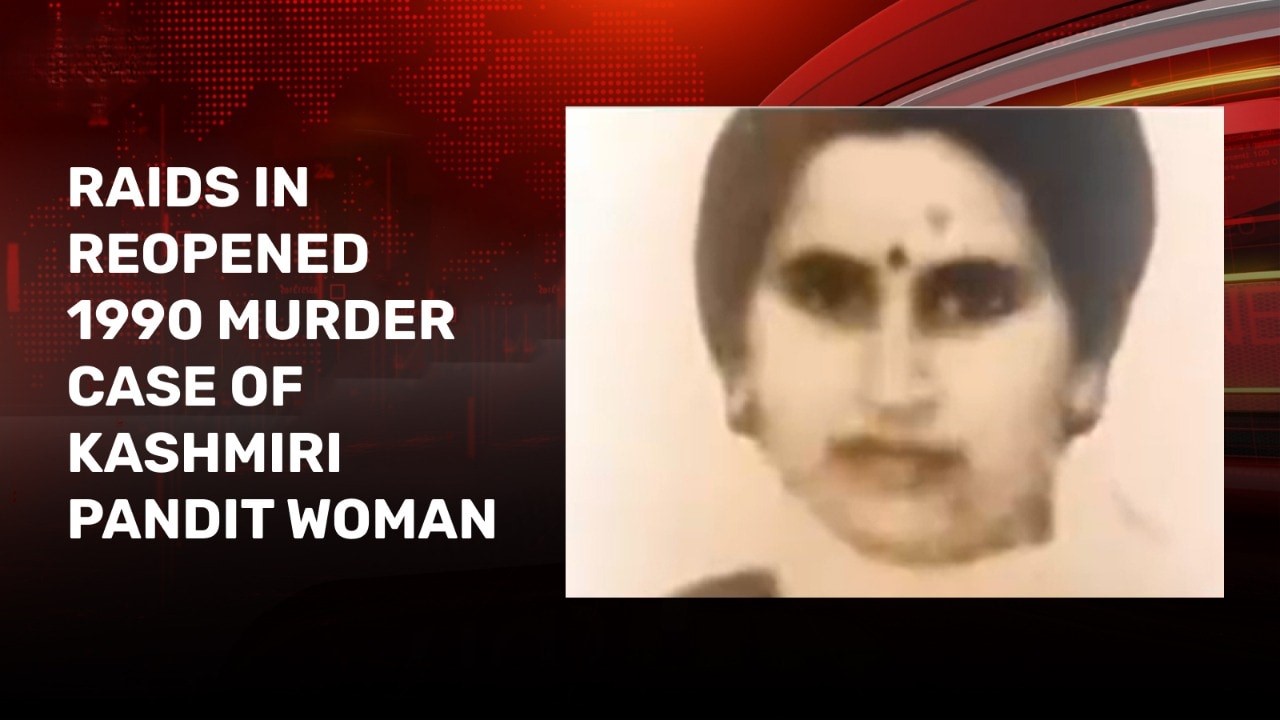A Case Frozen in Time Resurfaces
By: Javid Amin | Srinagar | 12 Aug 2025
More than three decades after the brutal killing of 27-year-old nurse Sarla Bhat, the Jammu & Kashmir State Investigation Agency (SIA) has reopened one of the most haunting cases from the early months of militancy in the Valley.
The move comes amid a broader official push to revisit unsolved crimes against Kashmiri Pandits, in a bid to address historic wrongs and reassert faith in the justice system. On August 12, 2025, the SIA conducted coordinated raids across Srinagar, unearthing fresh evidence and reigniting public attention on a case that had largely faded from headlines but never from memory.
Who Was Sarla Bhat?
-
Age & Profession: 27-year-old nurse at Sher-i-Kashmir Institute of Medical Sciences (SKIMS), Srinagar.
-
Hometown: Originally from Anantnag, South Kashmir.
-
Background: Sarla was among the dwindling number of Kashmiri Pandits who chose to remain in the Valley in early 1990, even as targeted threats against the community escalated. Friends and colleagues recall her as resilient, committed to her patients, and deeply rooted in her homeland.
Her refusal to leave was both an act of personal courage and, tragically, a decision that would put her in the crosshairs of militant groups.
The Abduction and Murder (April 18–19, 1990)
According to the original FIR filed under No. 56/1990 at Nigeen Police Station:
-
On the night of April 18, 1990, alleged militants of the Jammu & Kashmir Liberation Front (JKLF) stormed her hostel at SKIMS.
-
She was forcibly taken to downtown Srinagar, a known hotbed of militancy at the time.
-
The next morning, her bullet-riddled and mutilated body was found.
-
A handwritten note near her body accused her of being a “police informer” — a label often used by militants to justify targeted killings during the insurgency.
The murder came at a time when intimidatory posters, hit lists, and targeted assassinations were part of a systematic campaign that would, within months, force tens of thousands of Kashmiri Pandits to flee their homes.
The Case Goes Cold
Although the FIR listed sections of the Ranbir Penal Code, Arms Act, and Terrorist and Disruptive Activities (Prevention) Act (TADA), investigative progress was virtually nonexistent.
Several factors contributed to the stagnation:
-
Law and Order Collapse: 1990 saw the virtual breakdown of state machinery in J&K, with security forces overwhelmed and civil administration paralysed.
-
Witness Intimidation: Survivors and potential witnesses faced severe threats, making cooperation with authorities dangerous.
-
Political Turbulence: The JKLF’s early prominence and the volatile political climate complicated police operations.
For the Bhat family and the wider Pandit community, the lack of closure became a wound that never fully healed.
The 2025 Breakthrough: SIA Raids Across Srinagar
On August 12, 2025, in a decisive move, the SIA raided eight locations linked to former JKLF leaders and associates:
-
Maisuma residence of Yasin Malik, JKLF chief currently serving a life sentence in Tihar Jail.
-
Properties of Peer Noorul Haq Shah, Javaid Ahmad Mir, Reyaz Kabir Sheikh, and Ghulam Mohammad Taploo.
Seized Evidence
Officials say the raids yielded:
-
Documents linking suspects to militant activities in the late 1980s and early 1990s.
-
Photographic and video material potentially corroborating witness accounts.
-
Communications records that may tie the suspects directly to the conspiracy.
The SIA has described the seized material as “pivotal” in reconstructing the events leading to Sarla’s death.
Legal and Political Context
Why Now?
The reopening aligns with Lieutenant Governor Manoj Sinha’s directive to revive dormant cases of atrocities against Kashmiri Pandits. This is part of a larger justice initiative aiming to:
-
Acknowledge historical wrongs.
-
Provide legal closure to families.
-
Strengthen deterrence against communal violence.
Applicable Laws
The revived investigation invokes:
-
Ranbir Penal Code (as applicable at the time for murder, kidnapping, and criminal conspiracy).
-
Arms Act (illegal possession and use of weapons).
-
TADA (for acts intended to destabilise the state and spread terror).
Possible Prosecution Challenges
-
Passage of 35 years means evidence degradation, loss of records, and death of potential witnesses.
-
Political sensitivities: The accused are tied to a movement that still has vocal supporters.
Broader Implications
For Justice
The case represents more than one woman’s tragic death — it is a symbol of the targeted campaign against Kashmiri Pandits in the late 1980s and early 1990s.
If successfully prosecuted, it could:
-
Offer a measure of closure to survivors and displaced families.
-
Demonstrate the state’s commitment to prosecuting historical crimes, no matter how old.
For Reconciliation
Acknowledging and prosecuting such cases is crucial for trust-building between communities.
Failure to do so risks deepening grievances and perpetuating a narrative of selective justice.
Bottom-Line: Justice Deferred, But Not Denied?
The reopening of the Sarla Bhat murder case after 35 years is both a legal milestone and a moral reckoning. For many, it’s a long-overdue acknowledgment that the voices of victims from that era still matter — and that the crimes committed in the chaos of 1990 cannot simply be buried by time.
Whether the renewed investigation will translate into convictions remains to be seen. But for Sarla’s family, and for countless others whose loved ones vanished or were killed during the early militancy, this moment is a reminder that justice, however delayed, is still worth pursuing.



